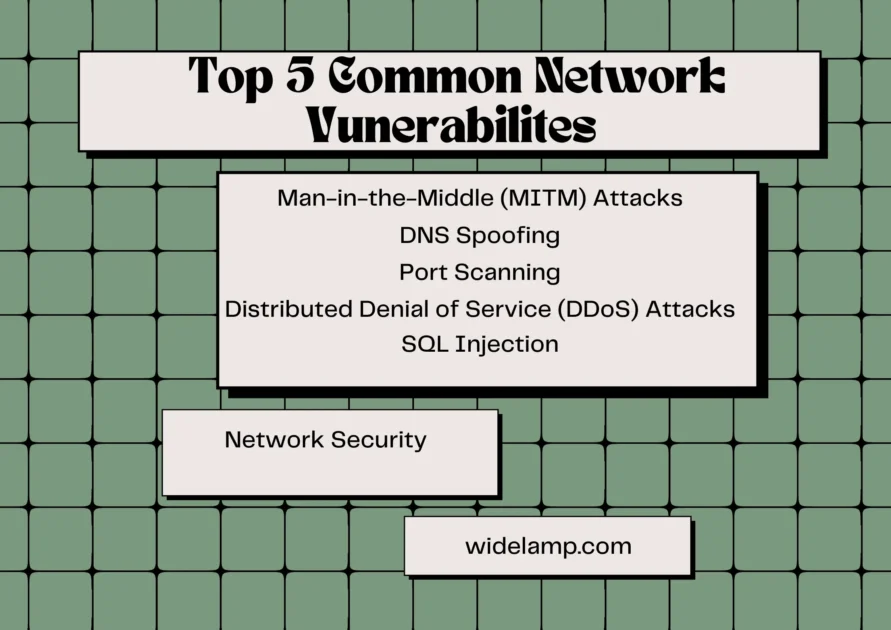|
Getting your Trinity Audio player ready...
|
In today’s digital age, a cybersecurity online program is very important for learning cybersecurity because cybersecurity is a critical field that is rapidly growing in importance. As cyber threats become more sophisticated, individuals and organizations must stay ahead by equipping themselves with the necessary skills and knowledge to protect sensitive information. If you’re interested in a career in cybersecurity, choosing the right online program is essential to set yourself up for future success. With an abundance of options available, finding the best cybersecurity online program can feel overwhelming. But fear not, because this ultimate guide is here to help. Whether you’re a beginner looking to enter the field or a seasoned professional seeking to enhance your skills, this guide will provide you with the insights and tips you need to make an informed decision. From accreditation and program curriculum to faculty expertise and job placement rates, we’ll cover all the key factors to consider when choosing a cybersecurity online program. By the end of this guide, you’ll have a clear understanding of what to look for and how to select the program that will best suit your goals and ensure your future success in the exciting field of cybersecurity. So let’s dive in and get started on your journey to becoming a cybersecurity expert.
Types of Cybersecurity Online Programs
The cybersecurity field offers a diverse range of online programs to cater to the varying needs and interests of aspiring professionals. From entry-level certificates to advanced degrees, these programs provide a comprehensive education in the latest cybersecurity principles, technologies, and best practices.
One of the most popular options is the online cybersecurity certificate program. These programs are typically shorter in duration, ranging from a few months to a year, and focus on building fundamental skills in areas such as network security, risk management, and incident response. They are an excellent choice for individuals looking to gain a solid foundation in cybersecurity or those seeking to upskill and enhance their existing knowledge.
Read More: 8 Top Cybersecurity certifications for 2024
For those seeking a more comprehensive education, online bachelor’s and master’s degree programs in cybersecurity are widely available. These programs delve deeper into the theoretical and practical aspects of cybersecurity, covering topics such as cryptography, penetration testing, digital forensics, and security policy development. These degrees are ideal for individuals who aspire to take on leadership roles or specialize in a particular area of cybersecurity.
In addition to traditional degree programs, some online institutions also offer specialized cybersecurity concentrations or tracks within broader information technology or computer science programs. These allow students to tailor their education to their specific interests and career goals, such as focusing on cloud security, industrial control systems, or cybercrime investigation.
Regardless of the specific program, it is essential to carefully research and evaluate the options to ensure that the chosen online cybersecurity program aligns with your career aspirations and provides the necessary skills and knowledge to succeed in this dynamic field.
Factors to consider when choosing a cybersecurity online program
When selecting the best cybersecurity online program for your future success, there are several key factors to consider. These factors will help you evaluate the quality, relevance, and overall fit of the program to ensure that it meets your educational and professional needs.
One of the primary considerations is the accreditation and reputation of the institution offering the online cybersecurity program. Look for programs that are accredited by reputable organizations, such as the Accreditation Board for Engineering and Technology (ABET) or the National Centers of Academic Excellence in Cyber Defense (CAE-CD) program. These accreditations demonstrate that the program meets rigorous academic standards and is recognized within the industry.
Another crucial factor is the curriculum and course offerings. Examine the program’s curriculum to ensure that it covers the essential topics in cybersecurity, such as network security, risk management, incident response, and ethical hacking. Additionally, look for programs that offer specialized tracks or electives that align with your specific interests or career goals, such as cloud security, industrial control systems, or digital forensics.
The expertise and industry connections of the faculty are also essential considerations. Seek out programs that employ instructors with extensive practical experience in the cybersecurity field, as they can provide valuable insights and real-world case studies. Additionally, look for programs that have strong industry partnerships, as these can offer opportunities for internships, networking, and potential job placements upon graduation.
The flexibility and convenience of the online program are also important factors, especially for working professionals or those with other commitments. Consider the program’s course delivery methods, such as live online classes, pre-recorded lectures, or self-paced modules, to ensure that it fits your learning style and schedule. Additionally, look for programs that offer support services, such as academic advising, technical assistance, and career counseling, to enhance your overall learning experience.
Finally, consider the cost of the program and the availability of financial aid options, such as scholarships, grants, or employer tuition reimbursement. While cost should not be the sole deciding factor, it is essential to ensure that the program is affordable and that you have access to the necessary resources to fund your education.
Accreditation and reputation of cybersecurity programs
When choosing a cybersecurity online program, the accreditation and reputation of the institution offering the program are crucial factors to consider. Accreditation ensures that the program meets rigorous academic standards and is recognized within the industry, providing assurance that the education you receive will be of the highest quality.
One of the most respected accrediting bodies for cybersecurity programs is the Accreditation Board for Engineering and Technology (ABET). ABET-accredited programs have undergone a comprehensive review process to ensure that they meet the organization’s strict criteria for curriculum, faculty, resources, and student outcomes. Graduates of ABET-accredited programs are highly sought after by employers, as they have demonstrated their mastery of the essential skills and knowledge required in the cybersecurity field.
Another important accreditation to look for is the National Centers of Academic Excellence in Cyber Defense (CAE-CD) designation, awarded by the National Security Agency (NSA) and the Department of Homeland Security (DHS). This accreditation recognizes programs that have demonstrated excellence in cybersecurity education and research, and it is highly valued by government agencies and private-sector employers alike.
In addition to accreditation, the overall reputation of the institution offering the online cybersecurity program is also crucial. Research the institution’s history, rankings, and recognition within the cybersecurity education community. Look for programs that are offered by well-established universities or colleges with a strong reputation for academic excellence and a track record of producing successful cybersecurity professionals.
Reputation can also be gauged by factors such as the program’s alumni network, job placement rates, and industry partnerships. Seek out programs that have a robust network of successful graduates, as this can provide valuable networking opportunities and insights into the industry. Additionally, programs with strong industry connections may offer internships, job placement assistance, and opportunities to collaborate with leading cybersecurity organizations.
Curriculum and course offerings
The curriculum and course offerings of a cybersecurity online program are vital considerations when choosing the right program for your future success. The program’s curriculum should provide a comprehensive and up-to-date education in the core principles and emerging trends within the cybersecurity field.
A well-designed cybersecurity online program should cover a broad range of topics, including network security, risk management, cryptography, incident response, digital forensics, and ethical hacking. These foundational courses should be complemented by specialized electives or concentrations that allow students to tailor their education to their specific interests and career goals.
For example, some programs may offer concentrations in areas such as cloud security, industrial control systems, or cybercrime investigation. These specialized tracks provide students with the opportunity to develop deeper expertise in their chosen area of focus, making them more attractive to employers and better equipped to handle the unique challenges within those domains.
In addition to the core curriculum, a high-quality cybersecurity online program should also emphasize practical, hands-on learning experiences. This may include virtual labs, simulations, and project-based assignments that allow students to apply their knowledge in real-world scenarios. These practical components are essential for developing the critical thinking, problem-solving, and technical skills that are highly valued in the cybersecurity industry.
Furthermore, the program should provide opportunities for students to stay up-to-date with the latest cybersecurity trends and technologies. This can be achieved through regular guest speaker sessions, industry certifications, or the incorporation of emerging topics and case studies into the curriculum. By staying current with the rapidly evolving cybersecurity landscape, students can ensure that they are well-prepared to tackle the challenges they will face in their future careers.
Faculty expertise and industry connections
The expertise and industry connections of the faculty teaching in a cybersecurity online program are crucial factors to consider when choosing the right program for your future success. The faculty members play a vital role in shaping the educational experience and providing students with the knowledge and skills needed to thrive in the cybersecurity field.
When evaluating a cybersecurity online program, look for faculty members who have extensive practical experience in the industry. Ideally, the instructors should have a background that includes working as cybersecurity professionals, researchers, or consultants, with a deep understanding of the latest threats, technologies, and best practices. This real-world experience allows them to provide valuable insights, case studies, and practical guidance that go beyond theoretical knowledge.
In addition to their practical expertise, the faculty should also have strong academic credentials, such as advanced degrees in cybersecurity, computer science, or a related field. This combination of industry experience and academic rigor ensures that students receive a well-rounded education that prepares them for the challenges they will face in the workplace.
Another important factor to consider is the program’s industry connections and partnerships. Look for online programs that have established relationships with leading cybersecurity organizations, government agencies, or private-sector companies. These partnerships can provide students with opportunities for internships, job placements, and networking, which can be invaluable for launching or advancing their careers.
Faculty members who are actively engaged in the cybersecurity industry, through research, consulting, or participation in professional organizations, can also bring valuable insights and industry trends into the classroom. This exposure to the latest developments and challenges in the field can help students stay ahead of the curve and develop the agility and adaptability needed to succeed in this rapidly evolving domain.
Flexibility and convenience of online programs
One of the primary advantages of pursuing a cybersecurity online program is the flexibility and convenience it offers. Online learning has become increasingly popular, particularly for working professionals or individuals with other commitments, as it allows them to access educational resources and complete coursework on their own schedule.
Read More: Top 50 Job Roles In Cybersecurity
When evaluating cybersecurity online programs, it’s essential to consider the various delivery methods and formats available. Some programs may offer synchronous classes, where students attend live virtual lectures and participate in real-time discussions. Others may use an asynchronous approach, with pre-recorded lectures and self-paced coursework that can be accessed at any time.
The flexibility of online programs also extends to the pace of learning. Many cybersecurity online programs offer the option to study part-time or full-time, allowing students to balance their education with work, family, or other responsibilities. This can be particularly beneficial for individuals who need to maintain their current employment while pursuing their educational goals.
In addition to the flexibility of course delivery and pacing, online cybersecurity programs often provide a range of support services to enhance the student experience. This may include virtual academic advising, technical assistance, and access to digital libraries and learning resources. These support services can be invaluable in helping students navigate the online learning environment and stay on track with their studies.
Furthermore, the convenience of online programs can be a significant advantage for individuals who live in remote or underserved areas, or those who may not have easy access to traditional on-campus programs. By offering a flexible and accessible learning experience, online cybersecurity programs can expand educational opportunities and help bridge the skills gap in the cybersecurity field.
Cost and financial aid options
The cost of a cybersecurity online program is an essential factor to consider when choosing the right program for your future success. Online programs can vary significantly in their tuition and fees, so it’s crucial to research and compare the financial implications of different options.
One of the primary advantages of online programs is that they often offer more affordable tuition rates compared to traditional on-campus programs. This is due to the reduced overhead costs associated with maintaining a physical campus, as well as the potential for economies of scale in delivering online education. Additionally, online programs may be more accessible to students who live in different regions or states, as they may not be subject to the same tuition premiums as on-campus programs.
However, it’s important to look beyond the base tuition cost and consider other expenses, such as technology fees, textbooks, and any required software or hardware. Some online programs may also have additional fees for proctored exams or virtual lab access. By carefully reviewing the full cost of attendance, you can make an informed decision and ensure that the program fits within your budget.
To help offset the cost of a cybersecurity online program, it’s essential to explore the available financial aid options. Many online programs participate in federal financial aid programs, such as grants, loans, and work-study opportunities. Additionally, some institutions may offer their own scholarships, grants, or employer tuition reimbursement programs specifically for online students.
When researching financial aid options, be sure to work closely with the program’s financial aid office or admissions counselors. They can provide guidance on the application process, deadlines, and any specific requirements or eligibility criteria. By taking advantage of these financial aid opportunities, you can make your cybersecurity online program more affordable and accessible.
Alumni network and career support services

The strength of a cybersecurity online program’s alumni network and the availability of career support services are crucial factors to consider when choosing the right program for your future success. These resources can significantly enhance your educational experience and provide valuable opportunities for professional development and career advancement.
A robust alumni network can be a valuable asset for current and prospective students. Engaging with a program’s alumni community can provide insights into the industry, access to mentorship and networking opportunities, and even potential job leads or referrals. Look for online programs that actively foster their alumni connections through events, online forums, and professional development initiatives.
In addition to the alumni network, the availability of comprehensive career support services is another important consideration. Effective career support can include resume and cover letter assistance, interview preparation, job search strategies, and connections to potential employers. Some programs may even offer career fairs, job placement assistance, or internship opportunities to help students transition from the academic environment to the professional world.
Furthermore, the program’s relationships with industry partners and employers can be invaluable for students seeking to launch or advance their careers in cybersecurity. Look for online programs that have established partnerships with leading cybersecurity organizations, government agencies, or private-sector companies. These partnerships can provide students with unique opportunities for networking, internships, and potential job placements upon graduation.
By choosing a cybersecurity online program that prioritizes career development and support, you can maximize your chances of success in the job market. The combination of a strong alumni network, comprehensive career services, and industry connections can give you a significant advantage as you navigate the competitive cybersecurity field and pursue your professional goals.
Conclusion and final thoughts on choosing the best cybersecurity online program
In the ever-evolving landscape of cybersecurity, choosing the right online program is essential for ensuring your future success. By carefully considering the factors outlined in this guide, you can make an informed decision and select the program that best aligns with your career aspirations and educational needs.
From the accreditation and reputation of the institution to the depth and flexibility of the curriculum, each element plays a crucial role in shaping your cybersecurity education and preparing you for the challenges of the industry. Additionally, the expertise and industry connections of the faculty, as well as the availability of support services and financial aid options, can significantly impact your overall learning experience and career prospects.
As you embark on your cybersecurity journey, remember that the choice of an online program is not a one-size-fits-all decision. Take the time to thoroughly research and evaluate the options, considering your personal learning preferences, career goals, and financial constraints. By doing so, you can ensure that you select the best cybersecurity online program to equip you with the knowledge, skills, and network needed to thrive in this dynamic and in-demand field.
Remember, your choice of a cybersecurity online program can have a lasting impact on your future success. By making an informed decision and investing in a high-quality program, you are taking a crucial step towards a rewarding and fulfilling career in the exciting world of cybersecurity. So, dive in, explore your options, and take the first step towards your cybersecurity future today.

Q / A – Section
Questions that are very helpful for everyone and clear some doubts…
-
Why is learning cybersecurity important in today’s digital age?
Cybersecurity is critical because cyber threats are becoming more sophisticated. Individuals and organizations need to protect sensitive information by staying ahead with the necessary skills and knowledge.
-
What should you consider when choosing a cybersecurity online program?
Factors to consider include accreditation, curriculum, faculty expertise, job placement rates, flexibility, cost, and support services.
-
What is the role of accreditation in choosing a cybersecurity program?
Accreditation ensures the program meets rigorous academic standards and is recognized within the industry, providing high-quality education and increasing employability.
-
What types of cybersecurity online programs are available?
Options include certificate programs, bachelor’s and master’s degrees, and specialized tracks like cloud security or digital forensics, catering to different levels and career goals.
-
What is an ABET-accredited program, and why is it valuable?
ABET accreditation ensures the program has met strict criteria for curriculum and faculty quality. Graduates from these programs are highly valued by employers.
-
How does a cybersecurity certificate program differ from a degree program?
A certificate program is shorter and focuses on building fundamental skills, while degree programs offer a more comprehensive education and cover theoretical and practical aspects in greater depth.
-
Why is the faculty’s expertise important in a cybersecurity online program?
Faculty with practical industry experience can provide real-world case studies and insights, making the education more relevant and useful.
-
What should a cybersecurity program’s curriculum include?
It should cover core topics like network security, risk management, incident response, and ethical hacking. Specialized tracks or electives should align with career goals.
-
Why is flexibility important in choosing an online cybersecurity program?
Flexibility allows students, especially working professionals, to complete the program on their own schedule, making it easier to balance education with other commitments.
-
What financial aid options are available for cybersecurity online programs?
Financial aid options may include federal aid programs, scholarships, grants, and employer tuition reimbursement programs to help make the program more affordable.
-
How can an alumni network and career support services benefit students in an online cybersecurity program?
A strong alumni network offers mentorship, networking opportunities, and potential job leads. Career support services assist with job placements, resume building, and interview preparation.
-
Why should job placement rates and industry connections be considered when selecting a program?
Programs with high job placement rates and strong industry partnerships increase the chances of securing internships, networking opportunities, and employment after graduation.




